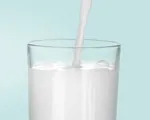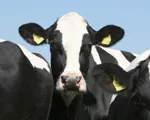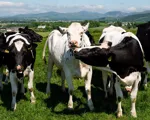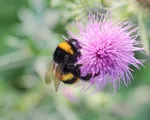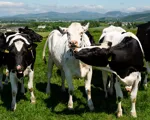
Find out about the benefits of drinking milk and how milk has played a part in human diets for many thousands of years all over the world.
With so much information about health and nutrition at our fingertips, it can be hard to feel confident about our everyday food choices. When a question like ‘is milk good for you?’ comes up, we’re all looking for a simple, straightforward answer. We can confidently say that milk, and products made from milk like yogurt and cheese, are good for you as part of a healthy and balanced diet.
The benefits of drinking milk
All cow’s milk naturally provides a source of nutrients that play important roles in maintaining the body’s functions, such as calcium, which is needed for the maintenance of normal teeth and bones. Milk also contains vitamins B2 and B12 that both contribute to the reduction of tiredness and fatigue.
Milk is also a source of protein, which contributes to the growth and maintenance of muscle mass, as well as phosphorous which is also important for the maintenance of teeth and bones.¹
What the experts say
It can feel like there’s a new study about a particular food or drink published every week, and the media loves to report each one as the latest big health news to follow. It’s important to remember that official dietary guidelines are created by independent scientific experts who review all the available evidence, including new studies, and find the common consensus. This means taking into account all the other studies that have gone before, and that have helped to build up an overall picture of the health and dietary characteristics of a particular food, such as milk.
Globally the expert consensus is that low fat milk and dairy products are good for you as part of a sustainable healthy and varied diet. The NHS’s Eatwell Guide advises that you should ‘have some dairy or dairy alternatives’.
Are humans meant to drink milk?
Whether you want to drink milk or not, and whether you think people in general should be drinking milk, is an entirely personal choice. It’s also a question that could be applied to so many other things we eat or make or farm, and each is down to your own beliefs and what works for you.
Milk and dairy products have been part of the human diet across Europe and many other parts of the world for more than 10,000 years, and we have developed specific adaptations to consume and digest it
There was a time in human history when we didn’t – and couldn’t – drink milk, both because we were hunter-gatherers, meaning we didn’t keep domesticated animals, and because we hadn’t yet developed the right enzyme to digest milk. Once farming started to take off about 11,000 years ago, people who kept animals like cattle, goats, and camels learned how to ferment their milk into cheese and yogurt, making it more digestible for people to consume, and creating a very valuable source of nutrition.
An evolutionary step came when some people developed the ability to produce the enzyme lactase, meaning they could drink and digest milk. This was a big advantage for these groups as it provided a readily available form of food when others would come and go, and so this genetic mutation thrived. This may have helped the humans who first developed farming in what is now the Middle East to migrate to Europe and establish themselves.
This is why milk and dairy products are so widely used and consumed across Europe today, with so many different local traditions and cultures surrounding their use. Milk and dairy are also a part of people’s diets across practically every other part of the world, with various culinary and cultural traditions attached to it.
¹Per 100ml milk is a natural source of protein, calcium, vitamin B2, vitamin B12, phosphorus, iodine and potassium. Milk should be consumed as part of a healthy diet and balanced lifestyle.


